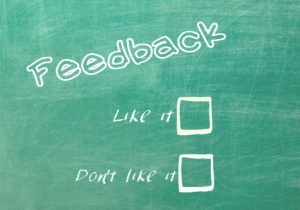If you had a serious medical or legal problem, you’d seek the best physician or lawyer you could find. Notice you’d be focused on finding the right person; ideally an expert with the right credentials and experience to resolve your problem. Especially when matters are complex and there’s a lot at stake, consulting with experts is the smart way to go.
The same is true when a company seeks to reduce the costs of bad hires by using employee assessments (e.g., psychometric tests) to gauge a candidate’s fit for a role. Understanding a candidate’s personality characteristics, reasoning skills, and suitability for a job is very complex, and there’s a lot at stake. As such, it’s wise for a company to seek an expert with the credentials and experience required to evaluate applicants and minimize bad hiring decisions.
And that’s exactly what many successful companies do – utilize the best person/expert they can find to assess their job candidates, especially for mission-critical roles (managers, senior leaders, etc.).
However, in my work as a Business Psychologist, I’ve noticed a disturbing trend in which some companies are mistakenly shifting their reliance away from experts and on to tools. By “tools”, I mean online tests that companies can administer on their own (e.g., without expert consultation and interpretation). These assessments usually produce computer-generated reports about an applicant’s personality characteristics, and are marketed as being quick and inexpensive.
While I support companies’ ongoing endeavor to reduce costs, doing psychological profiling without a psychologist is like diagnosing a medical condition without a doctor or going to court without an attorney: it’s likely to be far more costly in the long-run.
With all that in mind, I recommend that companies consider the following when looking for an expert to help them with job candidate assessment and selection:
Education and credentials – Most people wouldn’t take legal advice from someone without a law degree, or medical advice from someone without a medical degree. The same principle holds true when seeking advice about evaluating candidates’ personality characteristics and cognitive abilities: look for professionals with advanced degrees in psychology, as it is the scientific study of the human mind and its functions.
Further, certain disciplines within psychology tend to have a greater focus on personality and cognitive assessment than others, such as clinical psychology, school psychology, and neuropsychology. Psychologists educated in these practice areas usually have deep expertise in use of psychometric tests.
In addition, be careful not to assume that a consultant is well-credentialed because she or he works for a well-established consulting firm. For example, as there are relatively few doctoral-level psychologists working in the business sector, some consulting firms try to cut-corners by hiring people with business degrees and then training them in specific psychological assessments. Here again, there is a shift away from experts and on to tools. Especially if you are a Human Resources professional or business owner, I strongly recommend that you do your due diligence and ask consultants (and assessment vendors) about their education and credentials.
Experience and wisdom – One of my favorite proverbs is: “Knowledge is knowing what to say. Wisdom is knowing when to say it”. Having the right education, credentials, and technical knowledge are not enough to be an expert consultant in job candidate assessment. Rather, true experts also need to be adept at considering things such as a company’s culture, team dynamics, business strategy, etc., when interpreting the results of psychometric testing and drawing conclusions about a candidate’s fit for a role.
Similarly, it’s important for a consultant to have business experience, and to understand how psychometric test data applies in business contexts. With that in mind, I caution against relying on consultants with limited employee assessment experience (e.g., less than five years), or with “lopsided experience” (e.g., all academic, or all business, rather than a balance of both).
Tailored solutions – Finally, a person who tries to convince you that his or her product/test is exactly what you need is essentially a salesperson. In contrast, a person who listens to your needs and then tailors a solution to meet them is a consultant. An expert in candidate evaluation (like a Business Psychologist) will seek to understand your needs, challenges, and goals, and will recommend the right psychological assessments and process accordingly.
For more information about candidate assessment, business psychology, and the like, please visit my blog.



